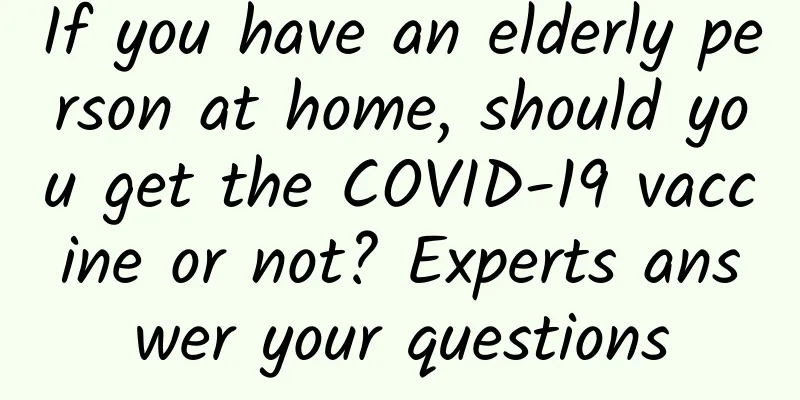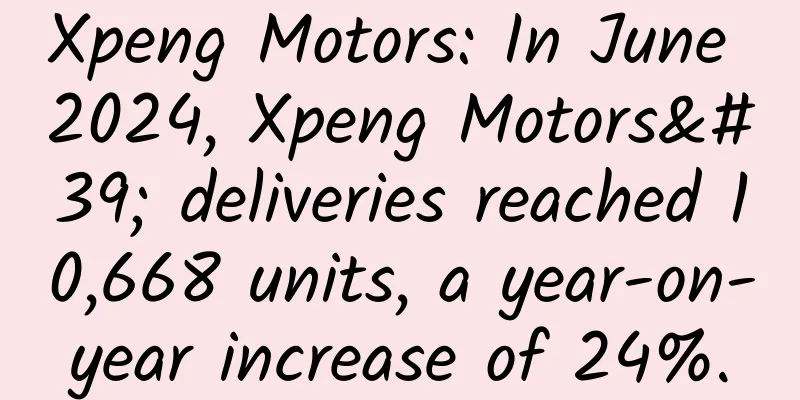If you have an elderly person at home, should you get the COVID-19 vaccine or not? Experts answer your questions

|
Mr. Li, who lives in Shandong, has been struggling with one thing recently: Some people say that the older you are, the more you should get the COVID-19 vaccine to avoid danger when the epidemic comes; others say that infectious diseases can only be contracted if there is a source of infection, and since you are old and don’t go out, there is nothing to transmit, so don’t get vaccinated to avoid adverse reactions... Both of these statements sound reasonable. Mr. Li also thought about how he had been relying on antihypertensive drugs to stabilize his blood pressure for many years, and he was always wondering whether he could get the vaccine. If there is an elderly person in the family, should I get the COVID-19 vaccine or not? A Science and Technology Daily reporter enumerated eight "tangles" in the minds of the public and recently asked several experts from the National Health and Family Planning Commission to talk about them. Confusion 1: It is said that vaccinations have adverse reactions. Will they affect the health of the elderly? Key points: Before using the vaccine, the safety of the vaccine is verified. Real-life clinical statistics show that the adverse reactions of the elderly are slightly lower than those of adults. Zheng Zhongwei, head of the vaccine research and development task force of the scientific research and development group of the joint prevention and control mechanism of the State Council and director of the Science and Technology Development Center of the National Health Commission, introduced that the new coronavirus vaccines currently used in my country have, in accordance with relevant approval requirements, conducted Phase I, II, and III clinical trials on the entire population, including the elderly, before obtaining conditional approval for marketing or emergency use from the National Medical Products Administration, showing that the vaccine has good safety. "So far, the number of doses of new coronavirus vaccine administered among people over 60 years old at home and abroad has exceeded 500 million." Zheng Zhongwei said that the vaccine has shown good safety in these more than 500 million doses and during the vaccination process for the elderly, and the adverse reactions in the elderly are slightly lower than those in adults. Conundrum 2: How safe is my country’s new coronavirus vaccine? Key point: The overall side effects of my country's main vaccines are relatively low. Zheng Zhongwei introduced that among the elderly people who received the COVID-19 vaccine abroad, there was a 106-year-old man, and the oldest person who received the COVID-19 vaccine in my country was also a 106-year-old man, both of which showed good safety. Data show that the overall side effects of my country's main vaccines are relatively low, and the proportion of fever after vaccination is about 17.61/1 million, which generally does not require treatment. Severe allergic reactions are less than one in ten million, and they are not a big deal as long as they are treated in time. Dilemma 3: The elderly have more underlying diseases and weaker resistance. Are there any special measures for the elderly group? Key points: Green channel, mobile vaccination vehicle, follow-up after vaccination... diversified services ensure convenience and safety. Cui Gang, a second-level inspector of the National Health Commission's Disease Control and Prevention Bureau, introduced that in view of the characteristics of the elderly such as more underlying diseases and weaker resistance, the National Health Commission has guided localities to carry out targeted vaccination work from the perspective of "convenience" and "safety". "Some areas have adopted methods such as setting up green channels for elderly people and mobile vaccination vehicles to provide diversified vaccination services." Cui Gang said that various places have also put the priority on finding out the health status of the elderly, giving full play to the role of health management files for the elderly, and combining various methods such as chronic disease management to conduct preliminary surveys and preparations in advance. Cui Gang introduced that in terms of safety, all localities have made plans in advance for the vaccination of the elderly, strengthened pre-job training for medical personnel, and equipped vaccination units with special medical assistance doctors and ambulances to ensure that there are no mistakes. During vaccination, strict "three checks, seven comparisons, and one verification" are implemented, on-site observation after vaccination is done, and follow-up work after vaccination is carried out. Conundrum 4: I don’t go out and there is no transmission route. Do I still need to rely on vaccines to prevent infection? Key points: It will be safer if the source of infection, transmission route and susceptible population are all in place. "The occurrence of infectious diseases requires a source of infection and a route of transmission. More importantly, as long as there are susceptible populations, there is a possibility of infection, regardless of whether the place is remote or not." Wang Huaqing, chief expert of the immunization program of the Chinese Center for Disease Control and Prevention, said that some elderly people may usually be in remote areas or do not go out, but with the development of society, transportation and logistics are becoming more and more convenient, and even in remote areas, the source of infection may not be out of reach. "In rural areas, especially remote rural areas, medical treatment conditions may be worse than in cities." Wang Huaqing believes that these groups of people need to be better protected and need to be vaccinated with the new coronavirus vaccine. Confusion 5: Diabetes, hypertension, heart bypass surgery... Can people with these underlying diseases get vaccinated? Key point: People with underlying diseases need the protection of the new coronavirus vaccine more. Judging from the current global death data, the two important factors leading to severe illness and death are age and underlying diseases. Wang Huaqing said: The proportion of elderly people with underlying diseases is still very large. Therefore, after these people are infected with the new coronavirus, the proportion of severe illness and death is relatively high. "Reports show that the mortality rate among elderly people with underlying diseases infected with the new coronavirus is 50%, while the mortality rate among the entire population infected with the new coronavirus is only 2% (WHO data). Therefore, these people need to be vaccinated more," said Wang Huaqing. Confusion 6: What is the use of vaccination? Key point: Greatly reduce the risk of severe illness or death after infection. The COVID-19 vaccine has played a huge role in my country's epidemic prevention and control. Zheng Zhongwei said that since the outbreak of the epidemic in Guangdong and Jiangsu, relevant departments have conducted data analysis and found that the risk of severe illness in the elderly after receiving the COVID-19 vaccine is significantly lower than that of the elderly who have not been vaccinated. More than 90% of the infected people with severe illness have not been vaccinated. Conundrum 7: I am over 80 years old. Can I still get vaccinated? Key point: Can fight. According to the oldest age that can be counted, the oldest person who received my country's new coronavirus vaccine abroad was 106 years old. The oldest person who received my country's new coronavirus vaccine was also 106 years old. According to statistics from other countries, for example, in Japan, the vaccination rate for the super-elderly over 80 years old is as high as 94.35%, followed by 92.62% for those aged 70-79, 87.83% for those aged 65-69, and 86.5% for those aged 60-64. (Official data from Japan as of November 1) Conundrum 8: In what situations can vaccines not be given? Key points: Do not get vaccinated if you have allergies, fever, or are in the acute attack period. For other reasons, please consult a doctor. Zheng Zhongwei said that in general, the safety indicators of several new coronavirus vaccines currently being administered in my country are better than those of various vaccines administered in normal years. Elderly people can receive the new coronavirus vaccine, except those who have experienced anaphylactic shock or laryngeal edema after vaccination, those who are suffering from fever or acute attacks of infectious diseases and neurological diseases. Wang Huaqing reminded that some elderly people are not sure and suggested consulting a vaccination doctor or clinical physician. Source: Science and Technology Daily Editor: Zhang Qiqi Review: Julie Final review: Liu Haiying ◎ Science and Technology Daily reporter Zhang Jiaxing |
<<: This lizard, named after the snake monster, has the ability to walk on water.
>>: How to refuel to get more power? There is a science to refueling!
Recommend
How to fully plan a screen-sweeping event?
“Behind every successful case, there is a methodo...
Strategy Analytics: Automotive, transportation, logistics and IoT will drive growth in the location sector in 2020
Here maintains leadership in location-based platf...
How to join Baidu AiPurchasing? How to activate Baidu AiPurchasing?
With the launch of Baidu Ai Purchasing (good ranki...
Deep Sea Cemetery: The Death of a Whale
At the northern tip of New Zealand's South Is...
Yuanfudao Product Analysis
Yuanfudao , as the unicorn company with the highe...
How do the koi fish that are all over the circle of friends stimulate users' psychology?
In late October, an article titled "In front...
Brutalism and the Utopian Nightmare
Leviathan Press: The designer of the Trellick Tow...
Kuaishou Live Streaming Getting Started Guide
We often say that traffic is money, so how do we ...
Tesla's new progress in localization: $145 million to purchase factory land
Tesla is reportedly seeking land for its Shanghai...
NetEase’s marketing methodology for screen-sweeping!
To swipe the screen once may be luck, but to swip...
Baidu promotion information flow advertising window style!
Information flow advertising style - window style...
How can a new brand build a live streaming system from 0 to 1?
After my first contact with the short video commu...
The cool breeze blows, the cold dew falls
Loading long image... Source: National Geographic...
MIIT Solicits Opinions on APP Personal Information Protection and Processing
Entering the digital and information age, the wid...
How much does it cost to produce the Hezhou sign-in mini program? Hezhou sign-in applet production price inquiry
There is no doubt that the topic of mini programs...









